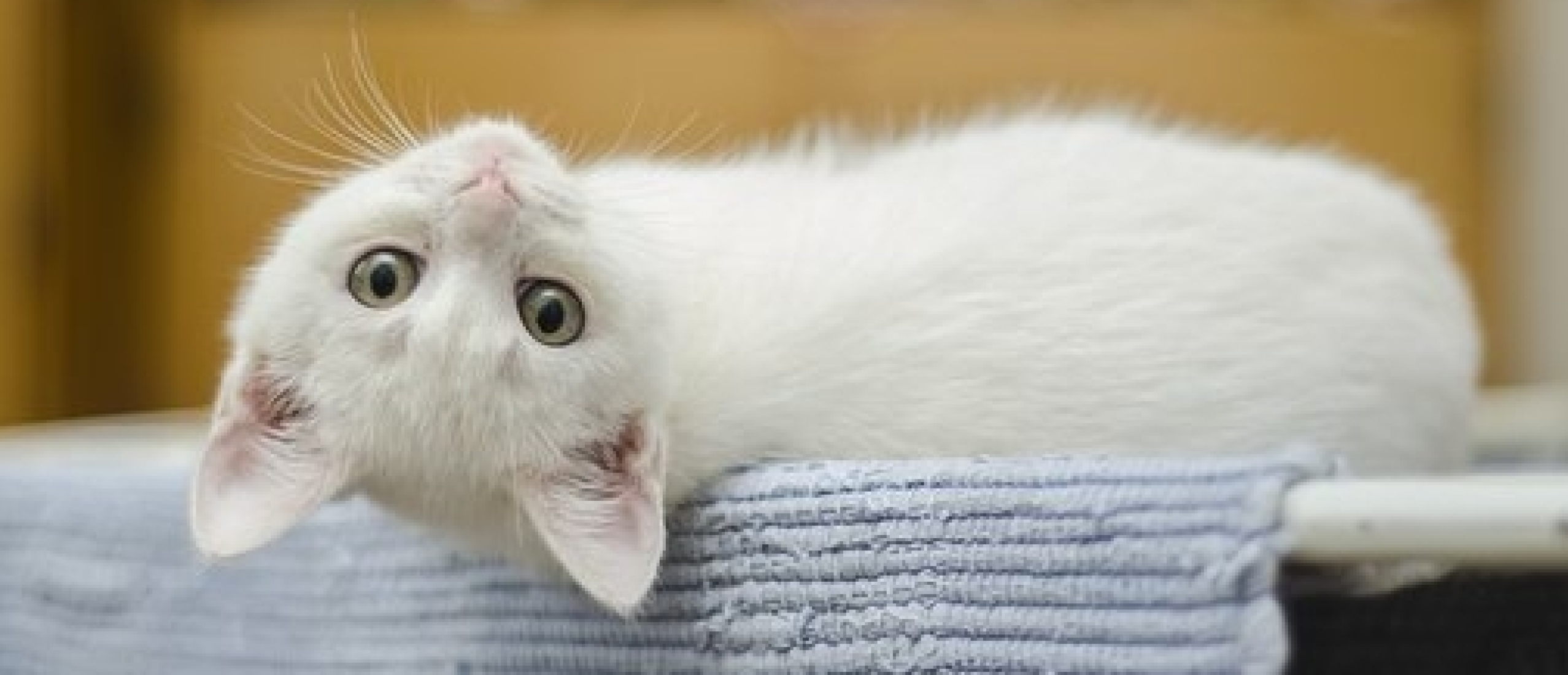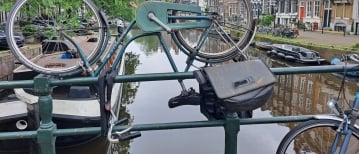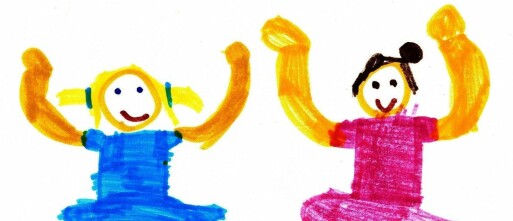Is your native language Chinese, Japanese, Ukranian, Russian, Turkish, Polish or Finnish? If so, then chances are high that a couple of small Dutch words will drive you crazy! Would you guess which words can be often 'problemetic'? Once again, the words are quite simple, but... nevertheless they can be a huge challenge!
So here are the Dutch words that could cause a lot of trouble: een, de & het. You call these lidwoorden, articles in English. Little nasty words like a / an & the
Let's start with a little test. What would you think of these sentences?
Ik heb huis (I have house)
Ik heb probleem (I have problem)
Ik heb auto (I have car)
Ik heb werk (I have work)
Ik heb kip (I have chicken)
Hopefully you see straight away that only the last 2 sentences are correct! If so, then congratulations! You did a good job!
But... here is the tricky thing... There is a chance that also the first three sentences look totallly okay with you. Depending on your language background, the concept of articles - words like een, de & het can be difficult to grasp. You really need to say: ik heb een huis, ik heb een probleem and ik heb een auto. If you don't say een, then somehow your sentence sounds very 'primitive' :(
Here is the thing... if somehow you know when to use these articles, you will come across as a lot smarter and a lot more intelligent. So this is why in this special blog, we will explore one important question: how do you know when to use articles?
Once again, for many people - and you could be one of them - ik heb huis, makes perfect sense. Certainly if in your language, the construction is exactly the same....
Let's start with some good news. If your native language is English, you are in a very good place. How you use articles is almost the same in Dutch and English, so if you speak English then believe it or not, you have a great competetive advantage.... Many things will make natural sense to you, while for others it could still be a very hard concept to grasp. There are some small differences however, between Dutch and English, so if you like to discover more, then please keep reading!
Also if your English is your second language, it your English is quite good, then you are in a very good place! Just make sure that more or less you do the same things with articles in Dutch as in English.
Here is the 'funny' thing... even if you speak English correctly, there is still a big chance that somehow you'll forget to use nesessary words like een, de & het all the time when you want to say something in Dutch.... Even when you do things correctly in English, it does mean that you'll automatically do it correctly in Dutch... Quite often, you need to give it some extra attention!
Let's start with some sentences, just to see if you can see the different meanings of all these sentences
1 ik heb kip (I have chicken)
2 ik heb een kip (I have a chicken)
3 ik heb de kip (I have the chicken)
Do these sentences all look the same to you? There is a big difference in meaning!
If you say: ik heb kip, then you talk about food
If you say: ik heb een kip, it is either an animal that is alive, or you have one whole chicken as food
If you say: ik heb de kip, then it could both be food or a specific animal that is still alive.
So here is the tricky thing: if you say: ik hou van kat, then it sounds like: I love cat. It means then that you like to eat cat! That is why it could be a good idea to know what you are doing, just to make sure that you avoid certain misunderstandings ;)
So let's start with some simple rules:
If you use a word in plural, then you do not have to use articles
Ik heb katten (I have cats) - ik heb problemen (I have problems)
With food in singular you do not have to use articles:
Ik drink koffie (I drink coffee) - Ik eet pizza
If you want to show that it is one unit or portion, then you can use een with food in singular
Ik drink een koffie (een kopje koffie) - ik drink een wijn (een glas wijn)
Here is one practical tip: if you order food or drinks, then you do not have to put it in plural!
You can simply say: ik wil twee bier en drie wijn, Keep it simple!
If you make a word smaller - with diminuitives - in singular, you need to use an article!
Ik eet EEN ijsje - ik drink EEN biertje
If you put it in plural, then you do not use articles: ik eet ijsjes en ik drink biertjes
Een beetje is also a diminuitive! Ik versta EEN beetje Nederlands (I understand A bit of Dutch)
For the rest, if you just follow the English rules, then more or less, you will do it correctly in Dutch as well! The golden rule is that you use articles with very concrete and visible objects, such as huis, partner, auto, computer.,.. Just follow the English rules....
Just for some clarity, here are some words that do not need an article, just like in English:
Materials: een schaap heeft wol (a sheep has wool)
Feelings: ik voel frustratie (I feel frustration)
Weather: we hebben zon en regen (we have sun and rain)
Abstract things or philosophies: is kapitalisme goed?
So now it is time for some pedantic stuff. Some things in Dutch are a bit different from English.
1 in DE winter, not: in winter, in DE zomer, not: in zomer (with seasons you need articles)
2 Ik zie je op 2 januari (with dates you don;t need articles
3 With these words, you need an article:
Het leven & de dood (life and death)
De hemel & de hel (heaven & hell)
Het paradijs
De kerk (church)
De gevangenis (prison)
Het ziekenhuis (hospital)
Here are some examples: ik ga naar de hemel en jij gaat naar de hel! (I go to heaven and you go to hell!)
Joepie! Mijn schoonmoeder zit in de gevangenis! (my mother in law is in prison)
Remember that work is always tricky!
Ik heb werk means that you have work, a job or that you have something to do
If you say: I go to work, then you need to say: Ik ga naar het werk of Ik ga naar mijn werk
You also say: ik ben op het werk (at work in English)
Job is job in Dutch and then just like in English you need an article!
Ik heb werk, ik heb EEN baan - I have work, I have a job
By the way, is here is the classic mistake that most people make:
In het Nederlands, in het Engels, in English, in Dutch, so do not say: in Nederlands...
if you use a language with in, you do need to use het in Dutch. In Nederlands is wrong in Dutch....
Here is some really pedantic stuff!
You can say in Dutch: ik zet het op tafel (I put in on the table).
Don't worry too much about this one. You could say: ik zet het op een tafel, ik zet het op de tafel. Dutch people love to say: op tafel....
In some fixed combinations, Dutch people do not use articles
Pen en papier - ik heb pen en papier (you can say: ik heb een pen en papier) Papier is a material....
Naald en draad - ik heb naald en draad, but you can say: ikheb een naald en een draad (needle & thread)
Once again, if your English is really good, then you should be able to know when to use articles. As you can see, there are some minimal differences with English. The amount of differences is quite small, so if needed, you can simply memorize it!
Last but not least, there is something in English that you do not have to do in Dutch.
Here are some examples: I am A coach, I am A father
Can you see what happens? When you talk about a profession or a function, then in English you always need to use a. To my Dutch mind, it sounds a bit strange... In Dutch it is quite easy. Ik ben coach & ik ben een coach, ik ben vader & ik ben een vader all make sense.
You'll probably hear most often: ik ben coach & ik ben vader and if you like, you can still use een. So here, there is nothing to worry about!
The same is thing happens if you say: ik ben Nederlander. You can if you like, say: ik ben een Nederlander. In English you always have to say: I am a Dutch person. Een Nederlander here means: a Dutch person, someone from Holland.
Although this article may have seemed a bit technical, I hope that you can clearly understand a couple of things... First of all: speaking English is a great asset and whether you believe it or not, it makes speaking Dutch a lot easier! Then, just realize that with the articles there can be small differences between Dutch and English now and then. and If you listen and read with attention, you should be able to pick up most things easily in a natural way.
Last, but not least, if your native language is not English, but for example: Chinese, Japenese, Ukranian, Russian, Turkish, Finnish, Polish or Hindi , then please realize that this also gives advantages. Not necessarily for knowing when to use articles, but. - whether you believe it or not - it often gives another great advantage.... You have now flexibility of mind and chances are high that somehow, you can still outsmart people that only speak English!
The reason is simple... there are many other things that will make sense to you, things with grammar and vocabulary and somehow chances are high that somehow, you have a deeper understanding of language structures in general!
If you like to speak Dutch, then English is always a great advantage and... if you know other languages, it can even be better. Just be a more more alert and pay some specif attention now and then.... and.... please remember.... have fun while learning many new things and stay relaxed! You are doing a great job!




